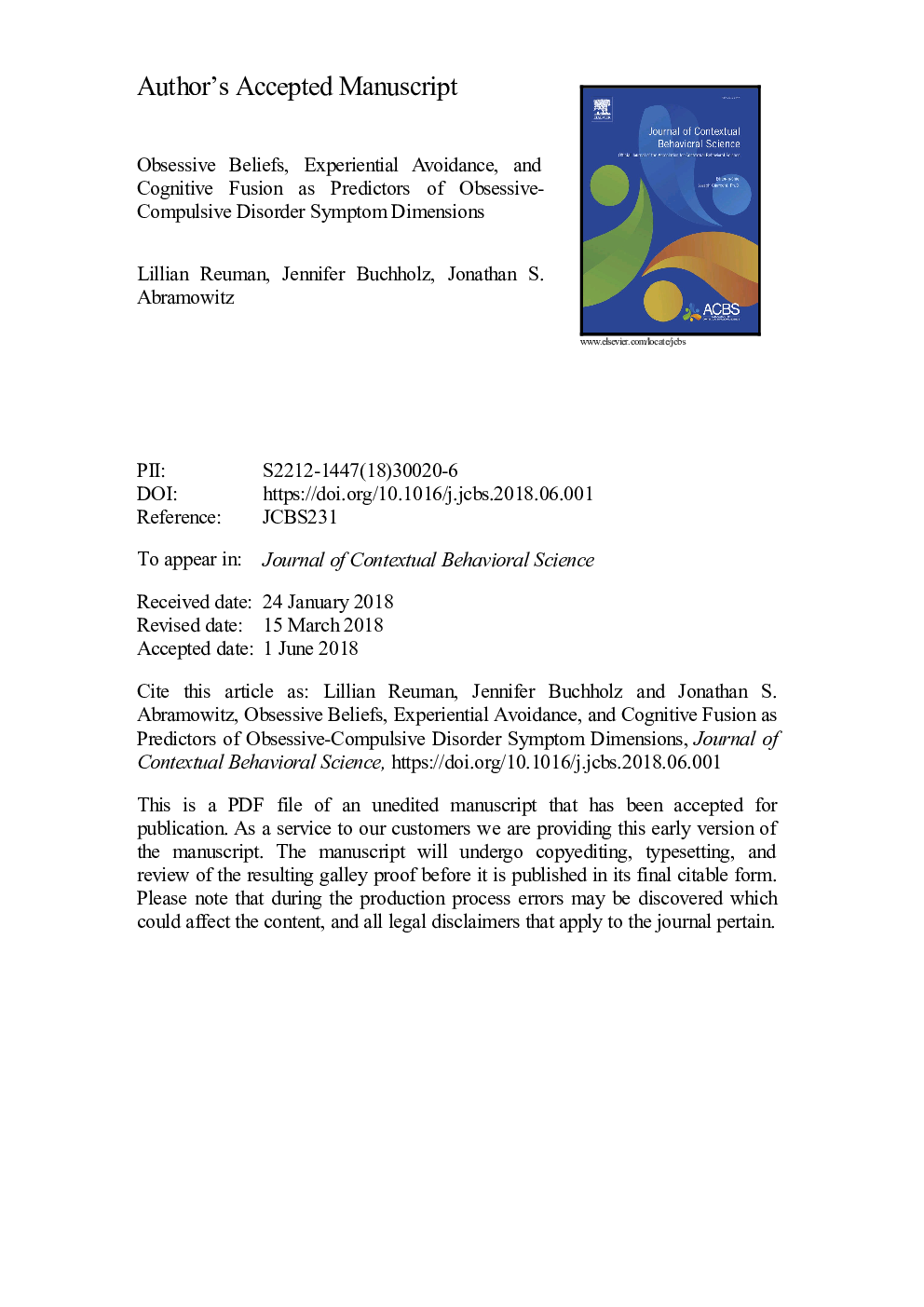| کد مقاله | کد نشریه | سال انتشار | مقاله انگلیسی | نسخه تمام متن |
|---|---|---|---|---|
| 8942234 | 1645064 | 2018 | 27 صفحه PDF | دانلود رایگان |
عنوان انگلیسی مقاله ISI
Obsessive beliefs, experiential avoidance, and cognitive fusion as predictors of obsessive-compulsive disorder symptom dimensions
ترجمه فارسی عنوان
باورهای وسواسی، اجتناب تجربی و همجوشی شناختی به عنوان پیش بینی کننده ابعاد علامت اختلال وسواسی-اجباری
دانلود مقاله + سفارش ترجمه
دانلود مقاله ISI انگلیسی
رایگان برای ایرانیان
کلمات کلیدی
موضوعات مرتبط
علوم پزشکی و سلامت
پزشکی و دندانپزشکی
روانپزشکی و بهداشت روانی
چکیده انگلیسی
Cognitive models of obsessive-compulsive disorder (OCD), although widely-supported, do not fully explain obsessive-compulsive (OC) symptoms. Mid-level constructs from acceptance and commitment therapy (ACT; e.g., experiential avoidance, cognitive fusion) may advance our understanding of OCD symptoms by adding explanatory power to existing conceptual models. The current study examined the extent to which mid-level ACT constructs account for unique variability in OCD symptom dimensions within a large treatment-seeking sample of individuals with OCD. In line with previous research in analogue samples, regression analyses revealed that although experiential avoidance and cognitive fusion showed associations with OCD symptoms, these constructs did not generally add to the prediction of OCD symptoms once general distress and obsessive beliefs were accounted for. An exception was that cognitive fusion was a unique predictor of unacceptable obsessional thoughts along with beliefs about importance of and need to control thoughts. These findings provide further support for the cognitive model of OCD as well as the notion that mid-level ACT constructs best relates to the unacceptable thoughts dimension of OCD. Conceptual and treatment implications, study limitations, and future directions are discussed.
ناشر
Database: Elsevier - ScienceDirect (ساینس دایرکت)
Journal: Journal of Contextual Behavioral Science - Volume 9, July 2018, Pages 15-20
Journal: Journal of Contextual Behavioral Science - Volume 9, July 2018, Pages 15-20
نویسندگان
Lillian Reuman, Jennifer Buchholz, Jonathan S. Abramowitz,
